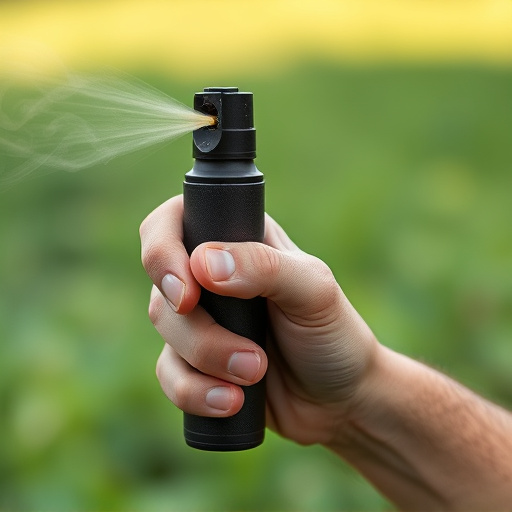Pepper spray laws vary significantly across states in the US, impacting its responsible usage for both civilians and law enforcement. Comprehending local regulations is crucial to ensure legal deployment and mitigate risks. Training should cover application techniques, environmental considerations, de-escalation strategies, and regular refreshers to minimize accidental harm. Staying informed about Pepper Spray Laws by State is essential for safe and effective use of this self-defense tool.
“Uncovering the Power and Regulation of Police Pepper Spray: A Comprehensive Guide. Pepper spray, a potent tool in law enforcement, is a compound that requires meticulous understanding and responsible handling. In this article, we delve into its composition, exploring how it works to subdue individuals. We present a state-by-state analysis of Pepper Spray Laws, shedding light on the varying regulations governing its use. Additionally, safety measures and best practices are highlighted for optimal deployment, ensuring both effectiveness and minimal risk.”
- Understanding Pepper Spray: Composition and Effectiveness
- Pepper Spray Laws: A State-by-State Analysis
- Safety Considerations and Best Practices for Pepper Spray Use
Understanding Pepper Spray: Composition and Effectiveness
Pepper spray, officially known as oleoresin capsicum (OC) spray, is a non-lethal self-defense tool designed to temporarily incapacitate a target by causing a burning sensation and difficulty breathing. Its composition includes various capsaicinoids, the most prominent being capsaicin, derived from chili peppers. These compounds trigger pain receptors in the skin and eyes, leading to intense discomfort and disorientation. The spray’s effectiveness lies in its ability to disrupt muscle control, especially in the respiratory system, making it a powerful tool for law enforcement and civilians alike.
The legal status of pepper spray varies across different states in the US, with each having its own Pepper Spray Laws by State. While some states allow its use without a permit, others require specific training or registration. Understanding these regulations is crucial when considering the purchase and carrying of pepper spray for personal protection. With proper knowledge, individuals can make informed decisions about their safety while adhering to legal boundaries.
Pepper Spray Laws: A State-by-State Analysis
The regulations surrounding pepper spray, a common less-lethal tool used by law enforcement, vary significantly from state to state in the US. Known for its ability to temporarily disable individuals through ocular and respiratory irritation, pepper spray has become a staple in police tactics across the nation. However, the legal framework that governs its use is diverse, with each state having its own set of Pepper Spray Laws by State.
Some states, like California, have stringent regulations that mandate specific criteria for pepper spray deployment, including strict protocols for officer training and de-escalation strategies. Conversely, other states have more permissive laws, allowing law enforcement agencies broad discretion in using pepper spray under certain circumstances. This state-by-state analysis highlights the need for both public safety and accountability, demonstrating the importance of understanding local Pepper Spray Laws by State to ensure responsible and legal use of this powerful tool.
Safety Considerations and Best Practices for Pepper Spray Use
When utilizing pepper spray, it’s paramount to prioritize safety and adhere to best practices to ensure effective and safe deployment. These considerations are especially crucial given varying Pepper Spray Laws by State, each with unique regulations regarding its use, storage, and accessibility. Users must be well-versed in their local laws to avoid legal repercussions and misuse.
Proper training is essential; law enforcement agencies should equip officers with comprehensive instruction on pepper spray application techniques, safe handling procedures, and de-escalation strategies. This includes understanding the spray’s range, wind effects, and potential risks to bystanders or individuals with specific health conditions. Regular refreshers and scenario-based exercises can help maintain proficiency and mitigate accidental harm.
In conclusion, while pepper spray is a powerful tool for law enforcement, understanding its composition, effectiveness, and safety considerations is paramount. Knowing the varying Pepper Spray Laws by State ensures responsible usage and promotes public safety. Always follow best practices to make informed decisions when it comes to self-defense and law enforcement applications.
